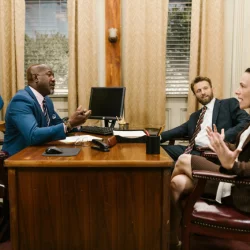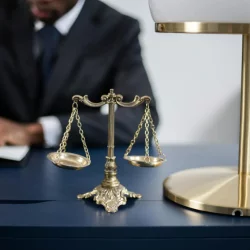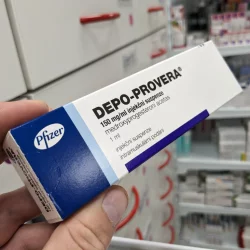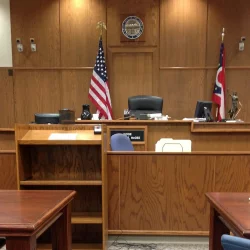Lawyer for Debt Collection: When to Hire One and What They Can Do for You

Are you drowning in unpaid debts or being hounded by aggressive debt collectors? Perhaps you're a business owner trying to recover money owed to you by clients or customers. Whichever side of the debt collection process you find yourself on, a specialized debt collection attorney might be the solution you need.
Debt collection can be a complex legal maze with numerous regulations, deadlines, and procedures that vary by state. Whether you're trying to collect a debt or defend against collection efforts, understanding when and how to work with a lawyer specialized in debt collection can make all the difference.
What is a Debt Collection Lawyer?
A debt collection lawyer is an attorney who specializes in the legal aspects of collecting debts or defending against collection actions. Unlike general collection agencies, these legal professionals have in-depth knowledge of debt collection laws and can take legal action when necessary.
Debt collection attorneys represent both creditors (those trying to collect money owed to them) and debtors (those who owe money). They understand the intricate legal frameworks that govern debt collection practices, including the Fair Debt Collection Practices Act (FDCPA) and various state laws that may offer additional protections.
For Creditors
If you're a creditor, a debt collection lawyer can help you recover money owed to you or your business. They can handle everything from sending formal demand letters to filing lawsuits and obtaining judgments against debtors. They know how to navigate the legal system efficiently to maximize your chances of recovering what you're owed.
For Debtors
If you're on the receiving end of collection efforts, a debt collection attorney can protect your rights. They can verify the validity of debts, negotiate settlements, represent you in court if you're sued, and even help you identify when debt collectors have violated the law in their collection attempts.
When Should You Hire a Debt Collection Lawyer?
The timing of hiring a debt collection attorney can significantly impact the outcome of your case. Here are key situations when consulting with a lawyer makes sense:
For Creditors Seeking Payment
When informal collection attempts have failed: If you've sent multiple invoices, made phone calls, and the debtor still hasn't paid, it may be time to escalate to legal help.
When dealing with substantial amounts: For larger debts, professional legal assistance often leads to better recovery rates compared to handling it yourself or through a standard collection agency.
When the statute of limitations is approaching: Each state has a limited timeframe during which you can legally pursue a debt. A lawyer can ensure you take action before this window closes.
When you need to file a lawsuit: If legal action becomes necessary, having an attorney who understands the court system and collection laws will be invaluable.
When dealing with complex business debts: Commercial debt collection often involves contracts and business relationships that benefit from specialized legal knowledge.
For Debtors Facing Collection
When you're being sued for a debt: If you've received a summons to appear in court, legal representation is crucial to protect your interests.
When you believe the debt isn't valid: A lawyer can help you challenge debts that you don't believe you owe, are incorrectly calculated, or may be past the statute of limitations.
When collection agencies are harassing you: If debt collectors are calling at all hours, threatening you, or using other prohibited tactics, an attorney can help stop the harassment and potentially pursue damages for FDCPA violations.
When you need to negotiate a settlement: Attorneys often have better success negotiating favorable settlement terms than individuals attempting to negotiate on their own.
When you're considering bankruptcy: If your debt situation is overwhelming, a debt collection lawyer can advise whether bankruptcy might be appropriate and refer you to a bankruptcy attorney if needed.
What Can a Debt Collection Lawyer Do for You?
Debt collection attorneys offer a range of services tailored to your specific situation. Here's what they can do for both creditors and debtors:
Services for Creditors
Demand Letters: Often the first formal step in the collection process, a letter from an attorney signals that you're serious about collecting the debt. These letters typically get more attention than those sent by the creditor directly.
Legal Counsel on Collection Strategies: An attorney can advise on the most effective approach for your specific situation, whether that's negotiation, litigation, or other collection methods.
Filing and Pursuing Lawsuits: When necessary, your lawyer can file a lawsuit to collect the debt, handle all court proceedings, and pursue judgment enforcement.
Judgment Enforcement: If you win your case, collecting on the judgment is often challenging. Debt collection attorneys know the legal tools available for enforcement, including:
- Wage garnishment
- Bank account levies
- Property liens
- Asset seizures
- Judgment renewal if needed
Compliance with Collection Laws: Your attorney ensures all collection efforts comply with federal and state regulations, protecting you from potential counterclaims by debtors.
Services for Debtors
Debt Validation: Your lawyer can demand proof that the debt is legitimate and that the collector has the legal right to pursue it.
Protection from Harassment: Attorneys can send cease and desist letters to stop harassing phone calls and other inappropriate collection tactics.
Representation in Debt Collection Lawsuits: If you're sued, your lawyer can represent you in court, potentially getting the case dismissed or negotiating a favorable settlement.
Negotiation of Debt Settlements: An attorney can often negotiate to settle debts for less than the full amount owed, sometimes significantly less.
Defense Against Improper Collection Methods: If collectors have violated the FDCPA or other laws, your lawyer can help you pursue compensation for these violations.
Statute of Limitations Defense: If the debt is too old to be legally collected, your attorney can use this as a defense.
How to Choose the Right Debt Collection Lawyer

Finding the right debt collection attorney requires careful consideration. Here's what to look for:
Experience in Debt Collection Law
Look for an attorney who specializes in debt collection rather than a general practice lawyer. Specialists will have deeper knowledge of the relevant laws and more experience with similar cases.
Track Record of Success
Ask about the lawyer's success rate in debt collection cases. While past results don't guarantee future outcomes, they can indicate the attorney's effectiveness.
Understanding of Your Specific Industry
If you're a business, consider attorneys who have experience in your industry. They'll better understand the typical transactions and challenges specific to your field.
Clear Fee Structure
Debt collection attorneys typically work under different fee arrangements:
Contingency Fees: Common when representing creditors, the lawyer takes a percentage of what they collect, typically 25-40%. If they don't collect, you don't pay.
Hourly Rates: Some attorneys charge by the hour, which might make sense for complex cases or when representing debtors.
Flat Fees: For certain services like sending demand letters or filing specific court documents, attorneys might charge set fees.
Make sure you understand exactly how and when you'll be charged before signing an agreement.
Communication Style
Choose a lawyer who communicates clearly and responds promptly. The debt collection process can be stressful, and good communication helps ease that burden.
The Debt Collection Legal Process
Understanding the typical legal process for debt collection can help you know what to expect when working with an attorney:
For Creditors Pursuing Payment
-
Initial Case Review: Your attorney evaluates the debt, documentation, and chances of recovery.
-
Demand Letter: The lawyer sends a formal letter demanding payment, often resulting in resolution without further legal action.
-
Filing a Lawsuit: If the demand letter doesn't work, your attorney files a complaint in court against the debtor.
-
Service of Process: The debtor is officially notified of the lawsuit through legal service methods.
-
Court Proceedings: This may include hearings and potentially a trial if the debtor contests the debt.
-
Judgment: If successful, the court issues a judgment in your favor.
-
Judgment Enforcement: Your attorney uses legal methods to collect on the judgment, which might include garnishing wages or placing liens on property.
For Debtors Defending Against Collection
-
Case Assessment: Your lawyer reviews the debt claim and identifies potential defenses.
-
Response to Collection Attempts: This might include debt validation requests or cease and desist letters.
-
Answer to Lawsuit: If you've been sued, your attorney files a formal answer to the complaint, potentially including counterclaims for collection violations.
-
Settlement Negotiations: Many cases are resolved through negotiation rather than going to trial.
-
Court Defense: If necessary, your lawyer represents you in court proceedings.
-
Post-Judgment Options: If a judgment is entered against you, your attorney can discuss options like payment plans or potential appeals.
Common Questions About Debt Collection Lawyers
How Much Does a Debt Collection Lawyer Cost?
Costs vary widely depending on your location, the complexity of your case, and the fee structure. Creditors often pay contingency fees of 25-40% of the amount collected, while debtors typically pay hourly rates or flat fees for specific services.
How Long Does the Legal Debt Collection Process Take?
The timeline varies significantly based on many factors, including:
- Whether the debtor responds to initial demand letters
- Court scheduling in your jurisdiction
- Whether the case is contested
- The complexity of enforcement if a judgment is obtained
Simple cases might resolve in a few months, while complex cases or those requiring extensive judgment enforcement could take years.
Is Hiring a Lawyer Worth It for Small Debts?
For creditors, the financial calculus depends on the amount owed. Very small debts may not justify legal costs unless bundled with others. However, for debtors facing collection on any amount, consulting with an attorney can be valuable, especially if you're being harassed or believe the debt claim is invalid.
Conclusion
According to legal experts who write for us on law, a specialized debt collection lawyer can be a powerful ally whether you're trying to recover money owed to you or defending against aggressive collection efforts. They bring expertise in navigating complex laws, court procedures, and negotiation strategies that can significantly improve your outcome.
If you're facing debt collection issues, consider consulting with an attorney who specializes in this area. Many offer free initial consultations to evaluate your case. With the right legal guidance, you can address debt collection matters efficiently and with a clear understanding of your rights and options.
More to Read:
Previous Posts:
Next Posts:





